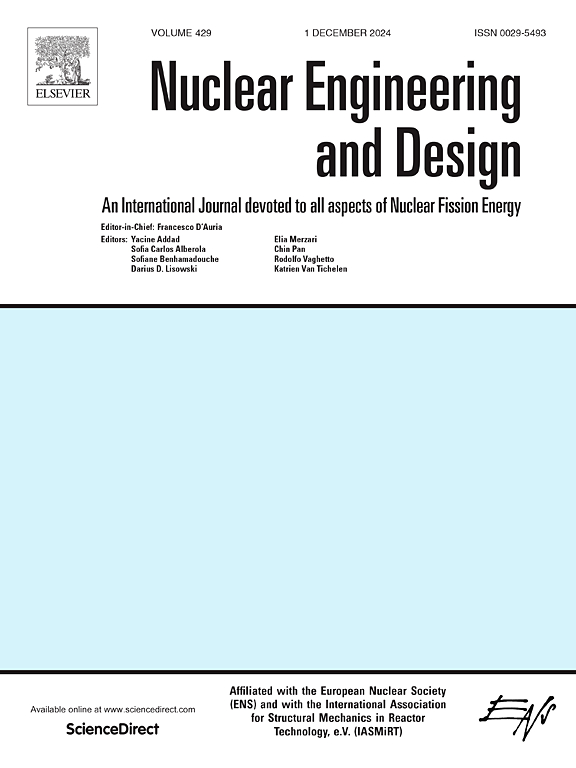Maximizing accuracy in severe accident simulations: An In-depth analysis of sampling methods for MELCOR code during station black-out in WWER-1000
IF 1.9
3区 工程技术
Q1 NUCLEAR SCIENCE & TECHNOLOGY
引用次数: 0
Abstract
This study explores the uncertainty in severe accident analysis of nuclear power plants, focusing on the thermal–hydraulic parameters of the WWER1000 reactor during station black-out scenarios. The primary challenge in such analyses lies in the inherent uncertainties associated with the simplifying assumptions embedded in computational codes. To address this, five prominent sampling methods—simple generation sampling, Latin hypercube sampling, SOBOL, HALTON, and LHS-SOBOL—are applied to improve the MELCOR code’s predictive accuracy. The results highlight that SGS produces non-uniform input distributions and performs poorly in comparison to the other methods. Additionally, key parameters, including hydrogen production, maximum containment pressure, and reactor pressure vessel rupture time, show significant variability, ranging from 150 to 602 kg, 14,100 to 28,000 s, and 0.62 to 1.05 MPa, respectively, with a 95 % confidence level. The findings emphasize the importance of selecting robust sampling techniques for enhancing the reliability of nuclear safety assessments.
求助全文
约1分钟内获得全文
求助全文
来源期刊

Nuclear Engineering and Design
工程技术-核科学技术
CiteScore
3.40
自引率
11.80%
发文量
377
审稿时长
5 months
期刊介绍:
Nuclear Engineering and Design covers the wide range of disciplines involved in the engineering, design, safety and construction of nuclear fission reactors. The Editors welcome papers both on applied and innovative aspects and developments in nuclear science and technology.
Fundamentals of Reactor Design include:
• Thermal-Hydraulics and Core Physics
• Safety Analysis, Risk Assessment (PSA)
• Structural and Mechanical Engineering
• Materials Science
• Fuel Behavior and Design
• Structural Plant Design
• Engineering of Reactor Components
• Experiments
Aspects beyond fundamentals of Reactor Design covered:
• Accident Mitigation Measures
• Reactor Control Systems
• Licensing Issues
• Safeguard Engineering
• Economy of Plants
• Reprocessing / Waste Disposal
• Applications of Nuclear Energy
• Maintenance
• Decommissioning
Papers on new reactor ideas and developments (Generation IV reactors) such as inherently safe modular HTRs, High Performance LWRs/HWRs and LMFBs/GFR will be considered; Actinide Burners, Accelerator Driven Systems, Energy Amplifiers and other special designs of power and research reactors and their applications are also encouraged.
 求助内容:
求助内容: 应助结果提醒方式:
应助结果提醒方式:


